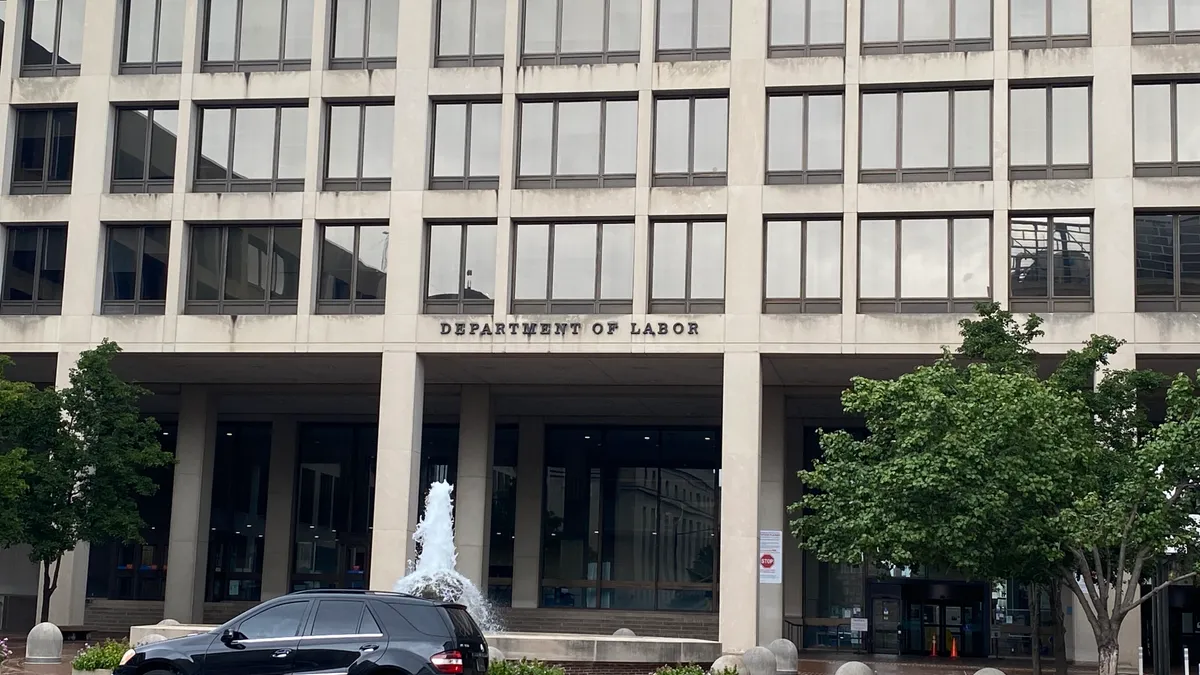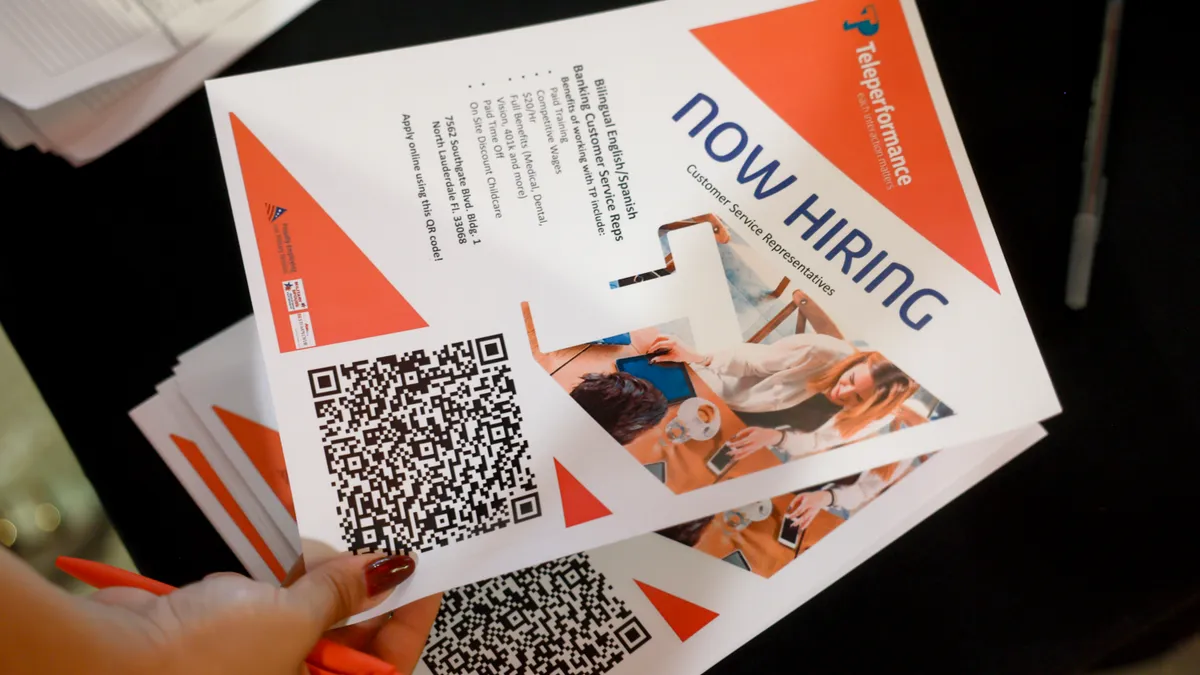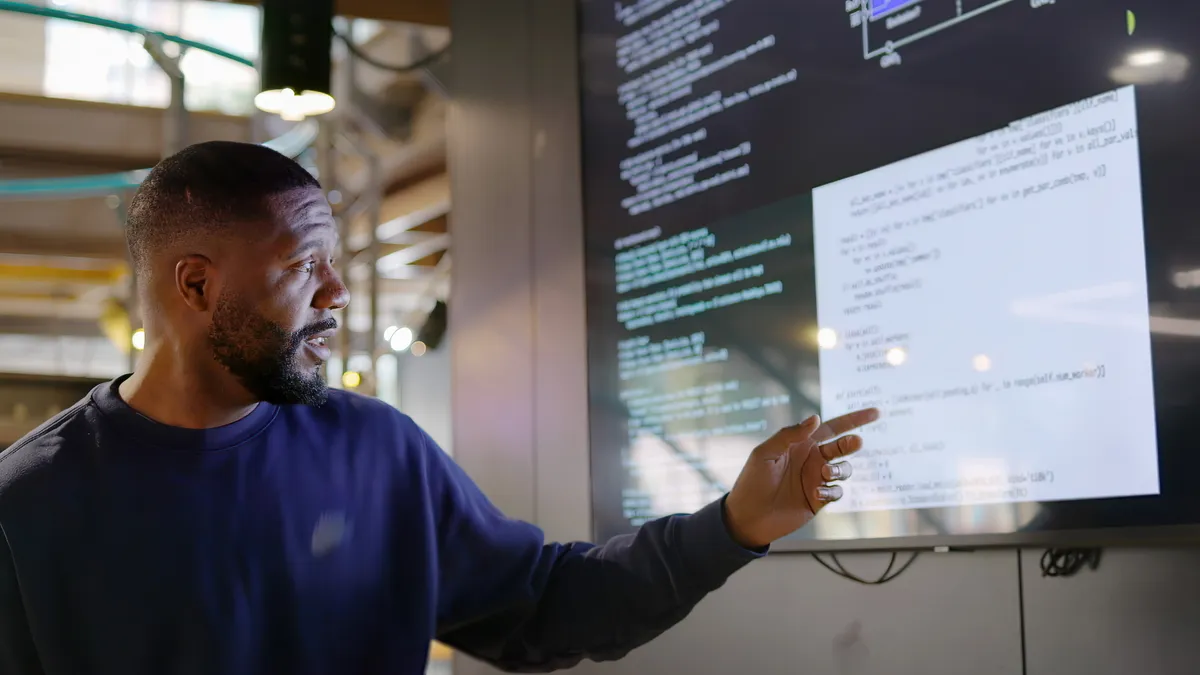For many, being selected as an intern for a summer or micro-program is the first step on a potential journey to a position within a company.
Even in a competitive hiring market, intern programs offer students and others early in their careers a taste of what it's like to work in the company and a chance to find a long-term fit — so savvy companies are choosing interns with employee placement in mind.
Is the intern right for the company?
Jeffrey Moss, CEO at Parker Dewey, told HR Dive that companies must select interns specifically with the intent for them to become an employee. "If you have a candidate with multiple intern offers, they may complete the program with you and not go on to be hired — that slot could have been filled by someone who would have evolved into a full-time hire, so you want to be as selective in your intern choices as for a permanent hire," he said.
Employers will want to consider candidates carefully to pick those with a future at the company. Does the intern care about the company mission? Can the intern bring their technical or industry experience to the work? "We've seen the most success from those who are tenacious and inquisitive, passionate about our mission and positive with the projects or teams with whom they're working," Lindsay Dagiantis, VP of HR at Envoy Global, told HR Dive in an email. Dagiantis said she believes the interns who shine often bolster their previous experiences through Envoy's internships.
Moss noted two main areas to assess: communication skills and intellectual curiosity. "Whether it's micro-interns or those in a summer program, we want to know if they're thinking about why this matters — how it impacts the bigger picture. Having that curiosity causes a series of behaviors I know will be positive in the long term." He also assesses candidates for problem-solving skills and work ethic, both key to helping an intern understand the nature of the business.
Is the company right for the intern?
Employers also must get a sense for if the intern is making sure that the company is the right fit for them, as well, Moss said. Do they understand the bigger picture that their work fits into? "We don't want to hire them and have them decide they're not the right the fit," Moss said.
A lot of it is encouraging interns to ask a lot of questions. Transparency is key, Moss said. "When interns understand beforehand why I'm asking them to do something, and when done how it fits into the larger need, they can assess if we're the right fit for them."
Evaluate interns' performance
Of course, a recruiter must also assess the intern's work, he said. Did they hand in projects with typos? Was the work only superficial? How they completed their projects will be the real test of long-term viability.
Chester Lantin, HR Director at Walker Sands, said interns at his company are evaluated against a set of hard skills, soft skills and their work product to see if they demonstrate that they're already operating at that next level. Company managers are responsible for evaluating their interns throughout the program and completing evaluation forms that should answer whether they believe the intern is someone they would recommend hiring.
"These recommendations along with interviews and feedback from team members whom they'd worked with are then reviewed by HR, VPs, partners and others to decide who we will ultimately hire at Walker Sands," he told HR Dive in an email.
Set up a smooth transition
To truly see if an intern will shine, give them real projects to work on; it will also ensure the transition to employee is more natural if they are treated like associates from day one, Moss said.
Parker Dewey clients often give student interns ongoing projects throughout the year, for additional chances to earn some money and keep that connection open. Some go through Parker Dewey's micro-intern platform, some do it directly. "I think it's a great strategy to stay connected," said Moss. "The halo doesn't wear off even when they're wined and dined by another company. They're doing interesting work and making connections. They can see themselves transitioning to a permanent role."
Effective communication is still key in this phase, Lantin said. Interns should know the process and timeline, as should managers and department leads. Interns should know what date they're going to be evaluated and what they're being evaluated on — and managers ought to know that, too, he said. "We are in constant communication throughout the program," he added. "However, no process is perfect and we are constantly finding ways to improve."
Consistency and communication are essential for a smooth transition, Dagiantis said, especially if there is a gap between the internship and being formally hired. Dagiantis' team makes a point to stay in communication with each intern who was offered a position, inviting them to the office for meetings or lunch-and-learns. Once they start as an official employee, they are invited to train and onboard with others in their cohort.
Even if student interns at Walker Sands are juniors, seniors or have already graduated, the program is the same at Walker Sands, Lantin said; "It is our mission that every individual that comes through our intern program is ready for that next full-time position level, even if that isn't for another year or two."
Just over a third of Walker Sands staff, including two VP partners, started their careers in the intern program, which prompts staff to invest back into the program in turn. "It really speaks to our value of 'Support' and how we lift each other up and celebrate the success of those around us," Lantin added.
Interns are onboarded at Walker Sands the same as an employee new to the firm. In some cases, the intern works on the same accounts they'd been working on as an intern, so the transition is a bit easier. For others, they're transitioning on to new accounts and in that case, they go through onboarding for those accounts, beginning the day they start, Lantin explained. "So whether they're starting tomorrow or in a month, they'll be afforded the same 'second first day' experience," he noted.
Dagiantis advises it's up to the individual manager to have conversations about what is new or has changed since their internship. However, once interns are employees, they have the opportunity to train with their cohort as needed.
Ease the transition with resources
Once hired, Envoy encourages interns to visit the office to meet with their team and review upcoming projects ahead of time, Dagiantis said. The onboarding schedule there includes comprehensive presentations of the company as well as reading materials, study guides, quizzes and tech trainings.
Aside from help from the HR department, all workers at Walker Sands, including interns, are paired with a mentor, Lantis said; "While their manager may change, their mentor is someone who will be their constant familiar face, who can help them navigate the transition." Walker Sands makes a point to pair interns with someone who has been through the program themselves, so they can bring firsthand experience and advice.
For Moss, it's all about relationship-building, from the intern interview through employee hire. "We're starting to see more companies creating engagement experiences even with students at the underclass level," he explained. Some interns start with microinternships that give students a chance for a neutral test drive lasting only a few days before a 10 week commitment. "We give them a chance to date before they get married," he said. "All along the path both sides are verifying it's a good fit that will transition well."





















